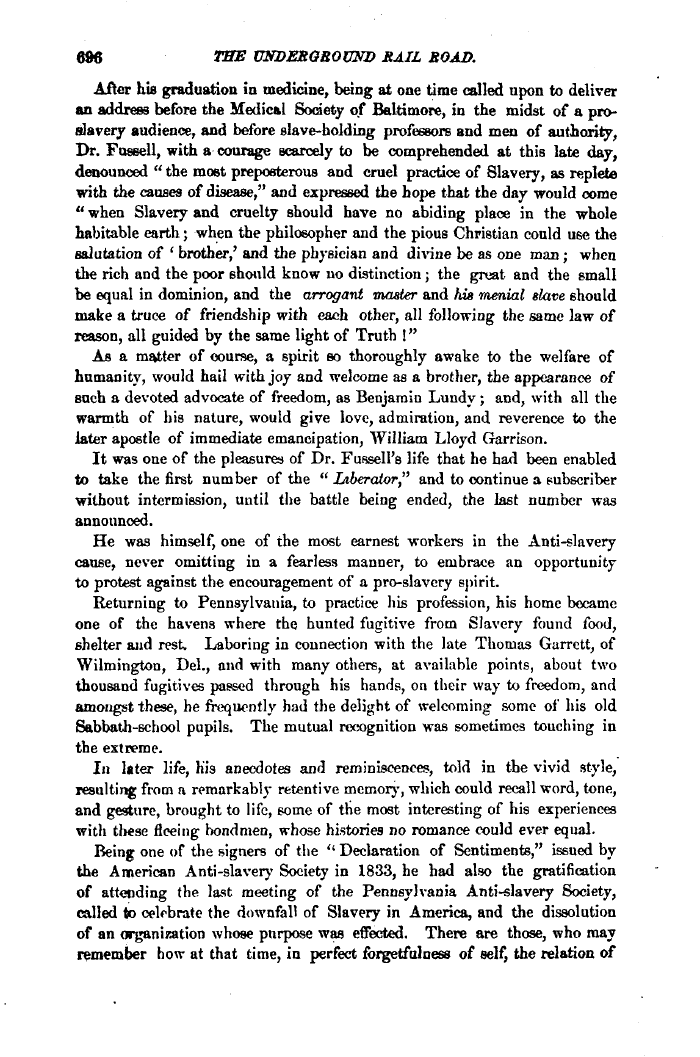 |
||||
 |
||||
| 696 TBE UNDERGROUND RAIL ROAD. After his graduation in medicine, being at one time called upon to deliver an address before the Medical Society of Baltimore, in the midst of a pro-slavery audience, and before slave-holding professors and men of authority, Dr. Fuseell, with a courage scarcely to be comprehended at this late day, denounced " the most preposterous and cruel practice of Slavery, as replete with the causes of disease," and expressed the hope that the day would come " when Slavery and cruelty should have no abiding place in the whole habitable earth; when the philosopher and the pious Christian could use the salutation of ' brother,' and the physician and divine be as one man; when the rich and the poor should know no distinction; the great and the small be equal in dominion, and the arrogant master and fas menial slave should make a truce of friendship with each other, all following the same law of reason, all guided by the same light of Truth !" As a matter of course, a spirit BO thoroughly awake to the welfare of humanity, would hail with joy and •welcome as a brother, the appearance of each a devoted advocate of freedom, as Benjamin Lundy; and, with all the warmth of his nature, would give love, admiration, and reverence to the later apostle of immediate emancipation, William Lloyd Garrison. It was one of the pleasures of Dr. Fussell's life that he had been enabled to take the first number of the " Liberator" and to continue a subscriber without intermission, until the battle being ended, the last number was announced. He was himself, one of the most earnest workers in the Anti-slavery cause, never omitting in a fearless manner, to embrace an opportunity to protest against the encouragement of a pro-slavery spirit. Returning to Pennsylvania, to practice his profession, his home became one of the havens where the hunted fugitive from Slavery found food, shelter and rest. Laboring in connection with the late Thomas Garrett, of Wihnington, Del., and with many others, at available points, about two thousand fugitives passed through his hands, on their way to freedom, and amongst these, he frequently had the delight of welcoming some of his old Sabbath-Bchool pupils. The mutual recognition was sometimes touching in the extreme. In later life, his anecdotes and reminiscences, told in the vivid style, resulting from a remarkably retentive memory, which could recall vrord, tone, and gesture, brought to life, some of tHe most interesting of his experiences with these fleeing bondmen, whose histories no romance could ever equal. Being one of the signers of the " Declaration of Sentiments," issued by the American Anti-slavery Society in 1833, he had also the gratification of attending the last meeting of the Pennsylvania Anti-slavery Society, called to celfbrate the downfall of Slavery in America, and the dissolution of an organization whose purpose was effected. There are those, who may remember how at that time, in perfect forgetfulness of self, the relation of |